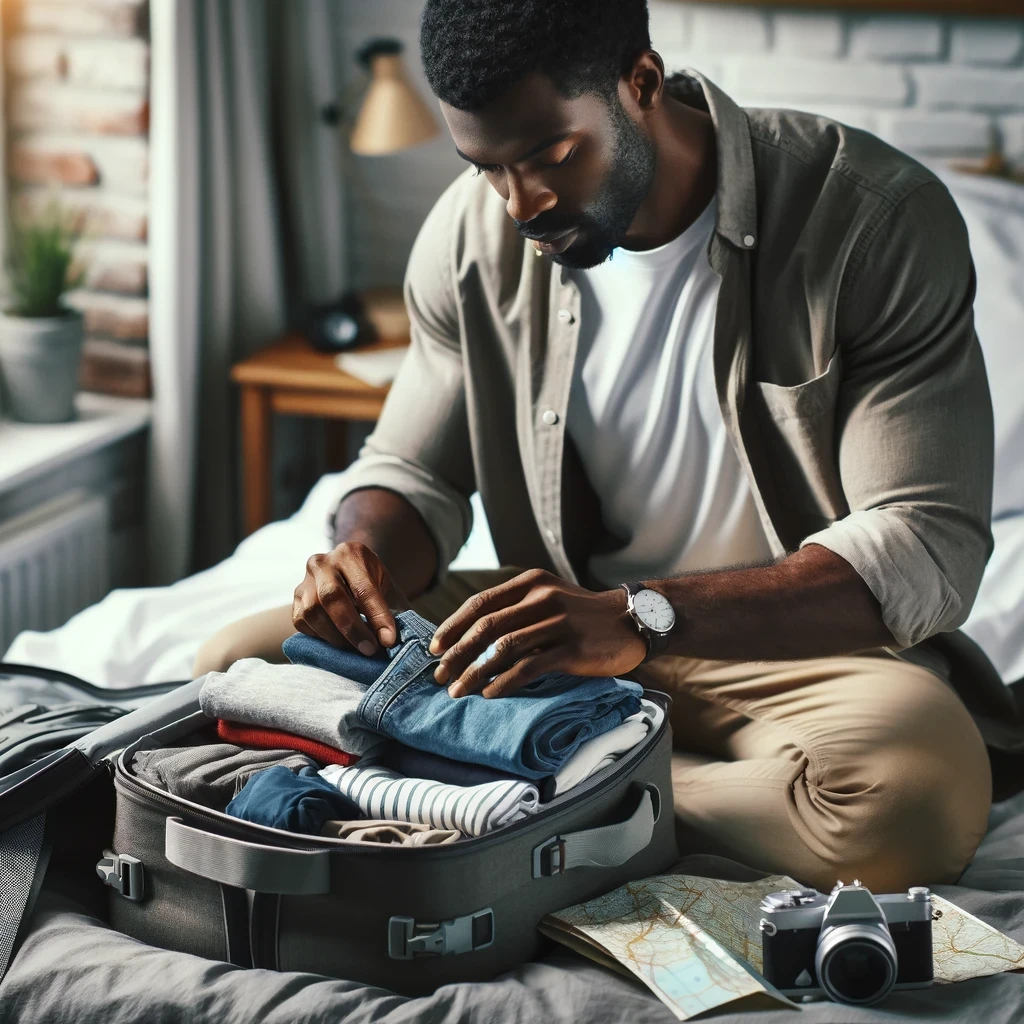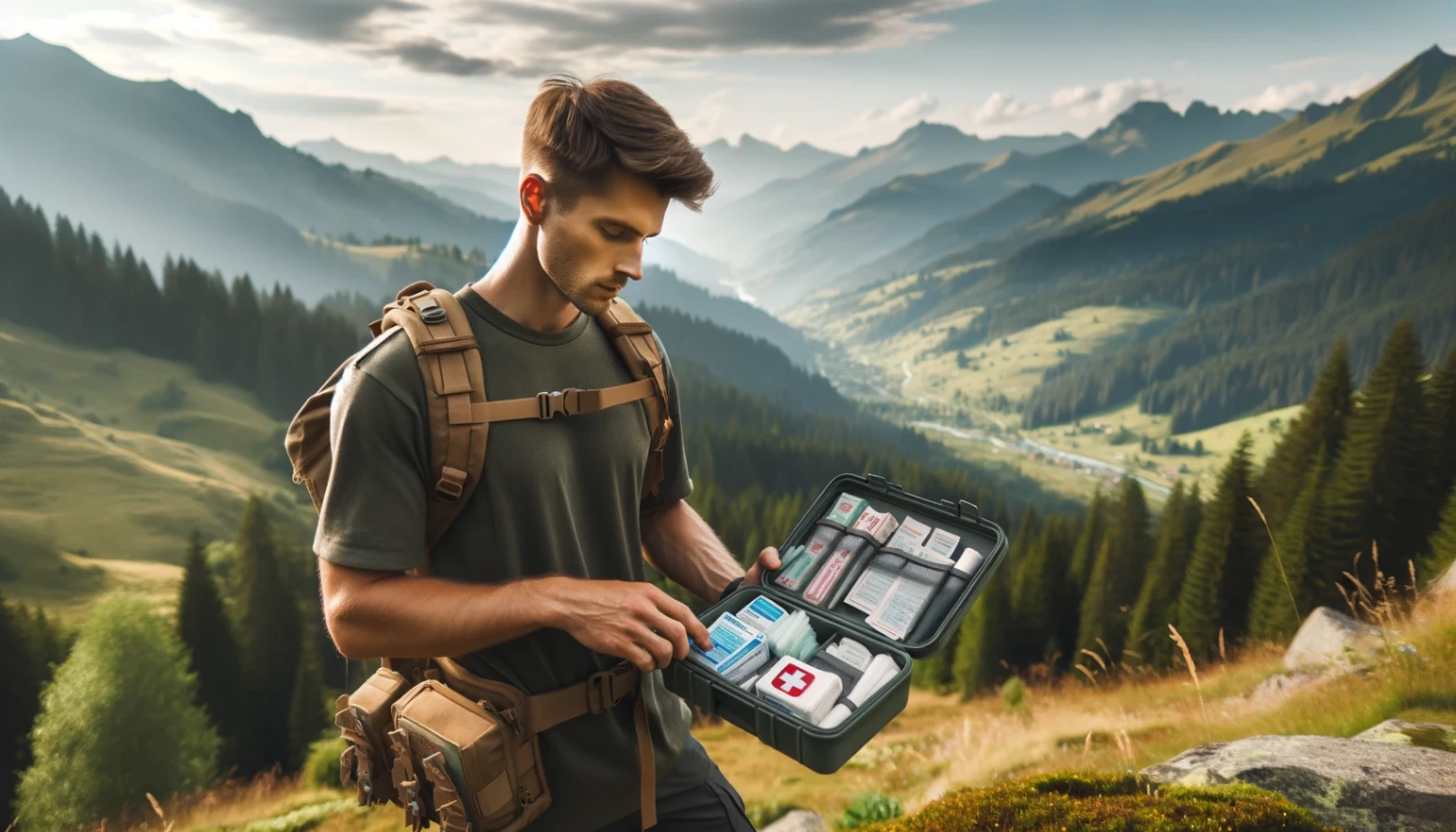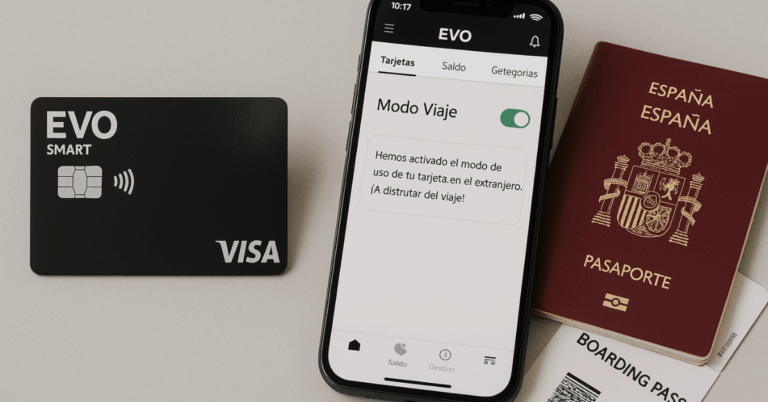Starting a journey is exciting, but ensuring your safety while traveling is paramount for a truly stress-free experience.
In this guide, we’ll equip you with essential travel safety tips that are straightforward and practical.
Whether you’re a seasoned traveler or on your first adventure, these tips will help you navigate the world with confidence and peace of mind.
Pre-Travel Planning
Pre-travel planning is the essential foundation for a stress-free and enjoyable trip. Here are vital aspects to consider when preparing for your next adventure:
- Destination Research: Understanding your destination’s local laws, customs, and culture is crucial. It helps you adapt and respect the local environment.
- Travel Documents: Make sure your passport, visa, and identification are up-to-date. Additionally, consider travel insurance for added peace of mind.
- Itinerary Creation: Developing a well-structured itinerary helps you make the most of your trip and provides vital information to loved ones in case of emergencies.
Paying attention to these pre-travel planning steps sets the stage for a hassle-free and memorable journey.
Packing Smart
Efficient packing is vital to a stress-free journey. Here’s a practical guide to help you pack bright and travel light:
- Pack Light and Efficiently: Prioritize essential clothing and gear to avoid over-packing. Versatile items can save space and weight.
- Secure Your Belongings: Use anti-theft bags and pouches to keep your valuables safe and prevent theft during your travels.
- Medications and First-Aid Kit: Always carry necessary medications and a basic first-aid kit to address any health concerns on the road.
- Travel Organization: Utilize packing cubes or organizers to keep your luggage tidy and make finding items easier.
- Layering and Climate Considerations: Plan your wardrobe with layering in mind, and research the weather at your destination to pack accordingly.
- Digital Copies of Documents: Scan or photograph essential travel documents and save them securely in digital format as a backup.
- Multipurpose Items: Look for items that serve multiple purposes, such as a scarf that can double as a blanket or a sarong that can be a cover-up or picnic blanket.
- Shoes for Versatility: Limit the number of shoes you bring by selecting versatile pairs that can work for various activities.
By mastering these additional packing strategies, you’ll streamline your luggage and be well-prepared for your travels.
Health and Safety
Your health and safety are paramount when traveling. Here’s a practical guide to help you stay well and secure during your journeys:
- Stay Vaccinated: Consult your healthcare provider for required and recommended vaccinations.
- Carry Medications: Ensure you have enough prescription and over-the-counter remedies for travel illnesses.
- Practice Hygiene: Wash hands regularly and use sanitizer. Watch what you eat and drink to prevent illnesses.
- Stay Hydrated: Drink water, especially in hot climates.
- Sun Protection: Use sunscreen, sunglasses, and hats for UV protection.
- Insect Safety: Apply insect repellent and wear protective clothing in bug-prone areas.
- Prioritize Rest: Sleep well to boost your immune system and energy levels.
These health and safety guidelines will safeguard your well-being and maximize travel experiences.
Transportation Safety
Safety during travel extends to the mode of transportation you choose. Here’s a concise guide to help you stay safe while on the move:
- Choose Reputable Transportation Options: Opt for well-established and reputable airlines, bus companies, or train services known for their safety records.
- Secure Your Luggage: Use locks and secure your bags to prevent theft or tampering during your journey.
- Use Seat Belts and Safety Measures: Always wear your seatbelt when traveling by car or bus. Follow safety instructions on trains, planes, and boats.
- Be Cautious with Local Transportation: In unfamiliar destinations, research the safety and reliability of local transportation options like taxis, rickshaws, or public transit.
- Plan Your Routes: Before departing, familiarize yourself with the routes and schedules of your chosen transportation methods to minimize risks.
You can ensure a secure and worry-free journey to your destination by prioritizing transportation safety.
Accommodation Safety
When traveling, your choice of accommodation significantly impacts your safety and peace of mind. Here’s a concise guide to ensuring your well-being while staying away from home:
- Research Safe Lodging Options: Prioritize accommodations with positive reviews and a reputation for safety. Look for well-established hotels, hostels, or vacation rentals.
- Lock Doors and Windows: Always lock the doors and windows of your accommodation when leaving or at night for added security.
- Use the Hotel Safe for Valuables: Safeguard your important documents, electronics, and valuables using the hotel’s in-room safe or secure storage facilities.
- Keep Emergency Exits in Mind: Familiarize yourself with the location of emergency exits in your accommodation to be prepared for unforeseen situations.
By following these accommodation safety guidelines, you can relax and enjoy your stay confidently, knowing you’ve taken steps to protect yourself and your belongings.
Personal Safety
Your safety is paramount when exploring new destinations. Here’s a straightforward guide to help you stay safe and secure while on your journey:
- Stay Aware of Your Surroundings: Being vigilant and aware of your environment is your first defense against potential risks.
- Avoid Risky Areas and Situations: Use common sense when navigating unfamiliar places. Stay away from poorly lit or deserted areas, and avoid risky activities.
- Use Technology Wisely: Leverage technology such as GPS tracking and mobile apps for safety, but stay focused on them.
- Traveling Alone: Share your itinerary and check in with a trusted friend or family member regularly.
- Group Travel: Establish a buddy system in groups to ensure everyone’s safety, especially in crowded or unfamiliar settings.
Incorporating these personal safety practices into your travel routine allows you to explore new horizons with confidence and peace of mind.
Emergency Preparedness
Being prepared for unforeseen circumstances while traveling is crucial. Here’s a concise guide to help you stay ready for emergencies during your journey:
- Know the Local Emergency Numbers: Familiarize yourself with your travel destination’s local emergency contact numbers.
- Carry a Basic First-Aid Kit: Pack a compact first-aid kit with essential supplies to address minor injuries and health issues.
- Familiarize Yourself with Local Medical Facilities: Identify nearby hospitals, clinics, and pharmacies if you require medical assistance.
- Have a Communication Plan in Place: Share your travel plans with a trusted contact who can help coordinate assistance.
- Travel Insurance: Consider travel insurance that covers emergencies, including medical, trip interruptions, or cancellations.
By taking these emergency preparedness steps, you can respond effectively to unexpected situations and ensure your safety while traveling.
Cultural Sensitivity
Cultural sensitivity is vital when traveling to new places, fostering positive interactions and enriching travel experiences. Here’s a concise guide on how to navigate different cultures with respect and appreciation:
- Respect Local Customs and Traditions: Research and adhere to local customs, traditions, and etiquette to show respect for the host culture.
- Dress Appropriately: Dress modestly and by local norms, especially when visiting religious sites or conservative areas.
- Learn Basic Phrases in the Local Language: Even just a few words or phrases in the local language can go a long way in showing respect and building connections.
- Be Open-Minded and Curious: Embrace cultural differences with an open heart and mind, seeking to learn and understand rather than judge.
- Engage with Locals: Interact with locals, ask questions, and listen to their stories to gain insight into their culture and way of life.
By practicing cultural sensitivity, you can forge meaningful connections and leave a positive impact while exploring diverse destinations.
The Bottomline
Incorporating these essential travel safety tips into your journey ensures a stress-free experience and a secure and enjoyable adventure.
By planning, staying vigilant, and respecting local customs, you can confidently explore the world, knowing you’ve taken the necessary precautions to safeguard your well-being and create lasting memories.














